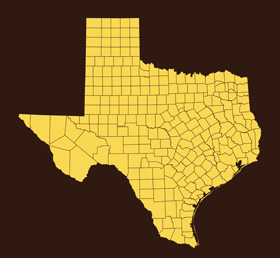Federal court finds two Texas congressional districts are racially gerrymandered, must be redrawn

Shutterstock.com
Updated:Two congressional districts in Texas are racially gerrymandered and must be redrawn, a federal district court ruled this week.
The Texas Tribune and The Hill report that the ones to be redrawn are District 27, which stretches from coastal Corpus Christi inland and northeast, and is represented by Republican Blake Farenthold, and District 35, which encompasses parts of Austin and San Antonio and the Interstate 35 corridor between the cities, and is represented by Democrat Lloyd Doggett.
Farenthold’s district was drawn in a way that “intentionally deprived [Latino voters] of their opportunity to elect a candidate of their choice,” while lawmakers illegally used race as the predominant factor in creating an “impermissible racial gerrymander” when drawing up Doggett’s district, the publications report.
Using race as the predominant factor in drawing district maps violates the U.S. Constitution and the U.S. Voting Rights Act, the court ruled (PDF). The maps were drawn in 2011, however, they were challenged in court and never took effect. Instead, a court drew interim maps, but didn’t change the boundaries for Districts 27 and 35. The maps have been used in the past three elections.
The state of Texas had argued that the maps–having been drawn by a court–could not be discriminatory, but the court rejected that idea. The discrimination from the 2011 maps merely carried over, it said. However, it did find for the state on District 23, which stretches along the Rio Grande from El Paso to San Antonio and is represented by Republican Will Hurd. That district had been modified by a prior court, easing concerns about racial gerrymandering.
The ruling means that Texas must redraw its Congressional districts in time for the 2018 election or permit a court to do it. It gave the Texas attorney general’s office until Friday to indicate whether the legislature would take up the task, something that would require a special session. If it doesn’t, the parties will begin the redrawing process in court on Sept. 5.
The ruling is the latest in a six-year legal battle over the maps, in which Texas has argued it gerrymandered the districts according to party, not race. Gerrymandering by party is legally permissible, although in practice, race and party are often intertwined. It’s also the third ruling this year from the same San Antonio federal court, addressing different aspects of the Texas congressional district maps. A separate challenge to the Texas House district maps is pending.
Prior to 2013, the state of Texas was among the jurisdictions subject to the “preclearance” requirements of the Voting Rights Act. The U.S. Supreme Court struck down that requirement as no longer necessary in 2013’s Shelby County v. Holder.
Texas Attorney General Ken Paxton said in a statement that his office is willing to take this case to the Supreme Court.
Updated at 11:43 a.m. on Aug. 18 to remove reference to “river” in fifth paragraph.



